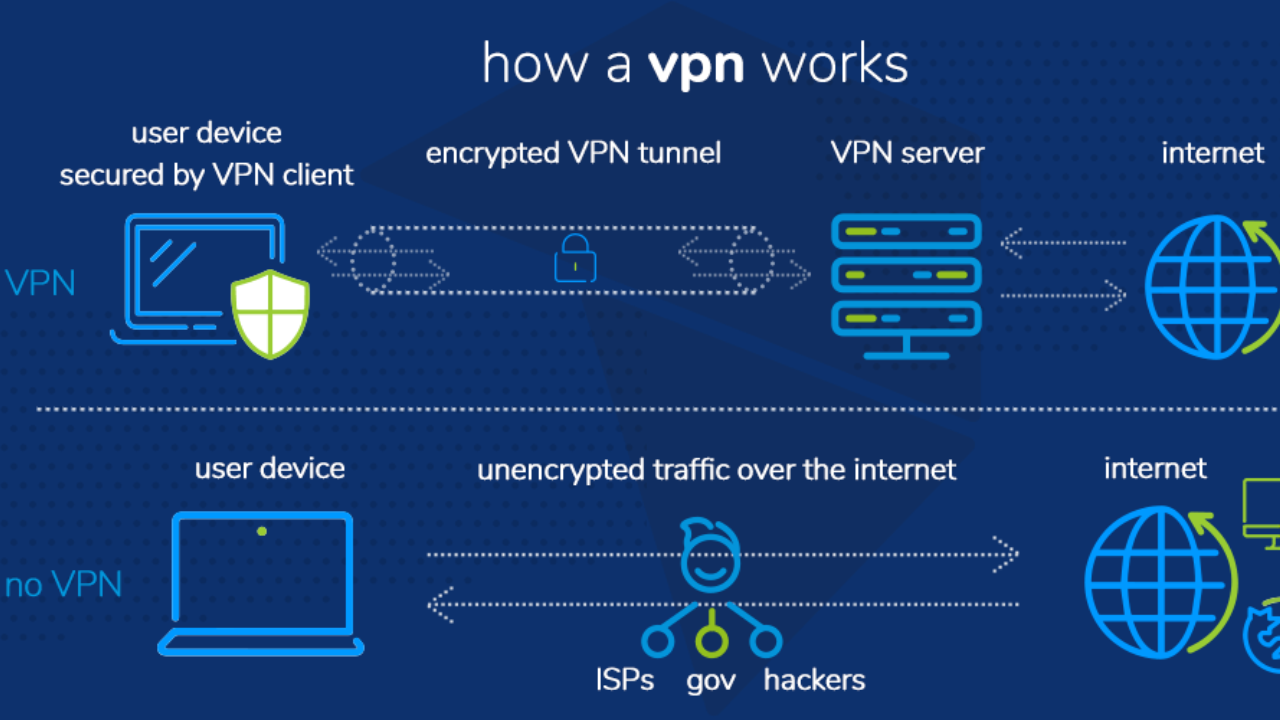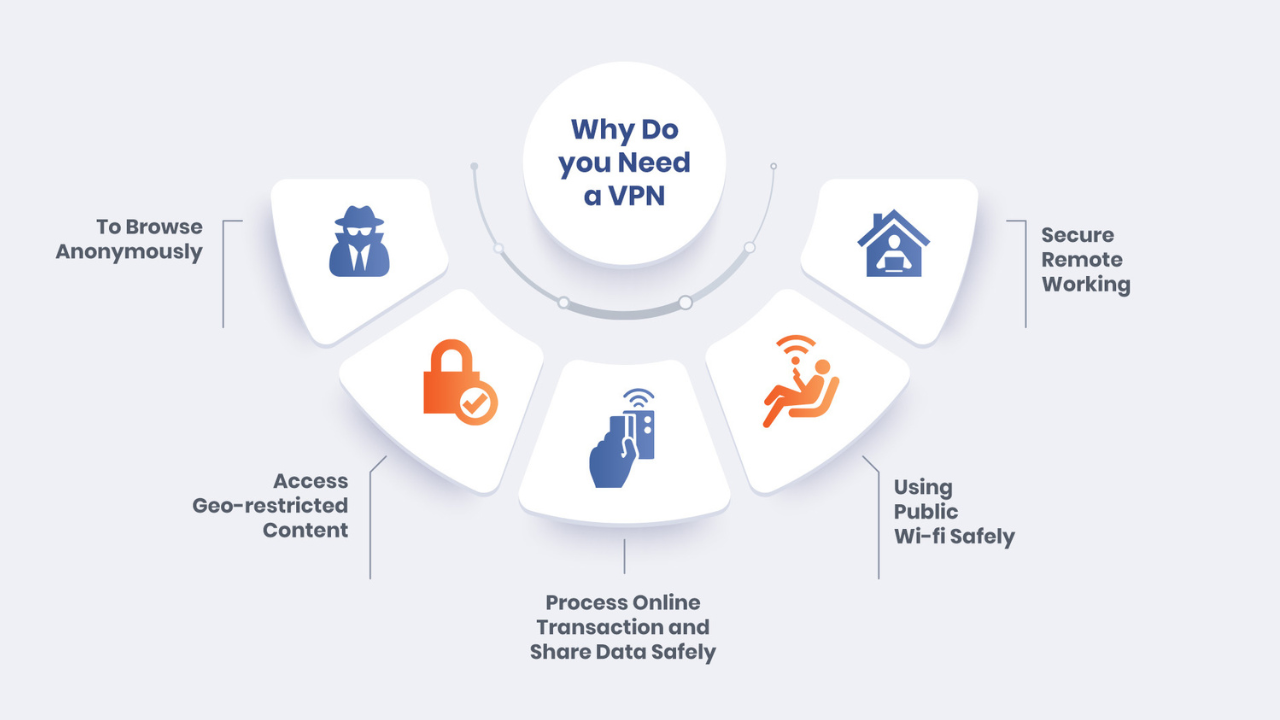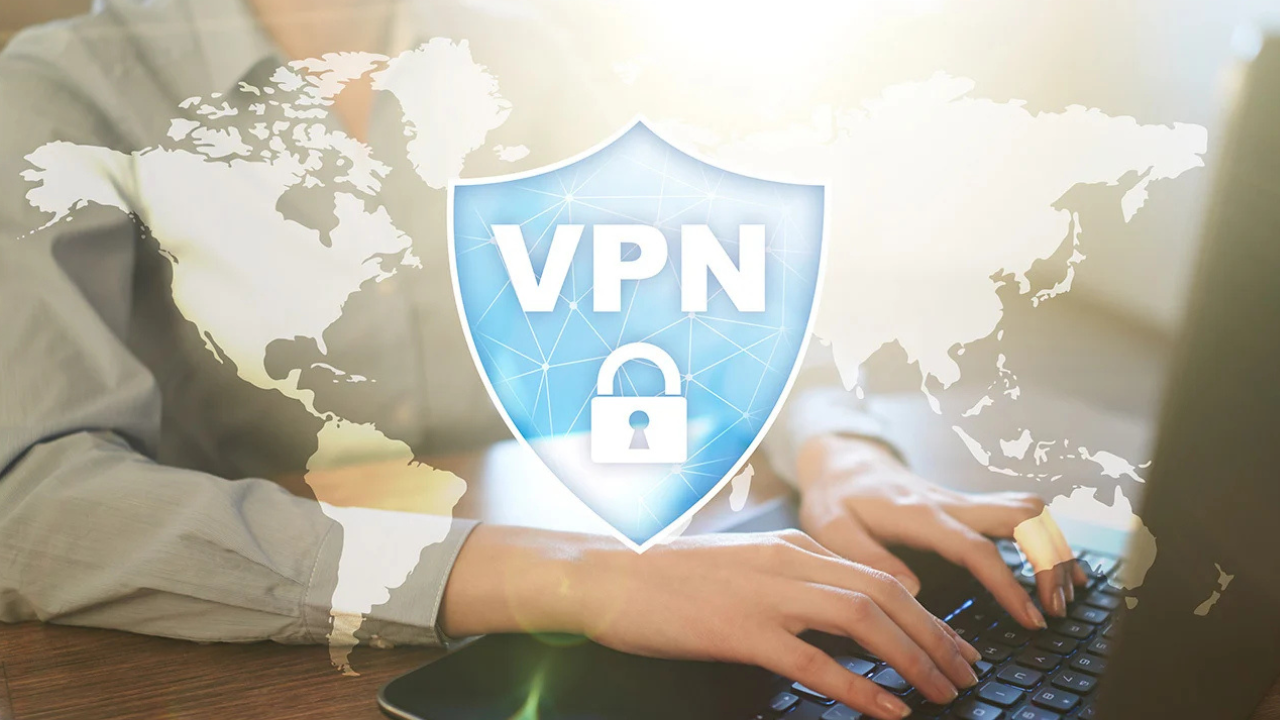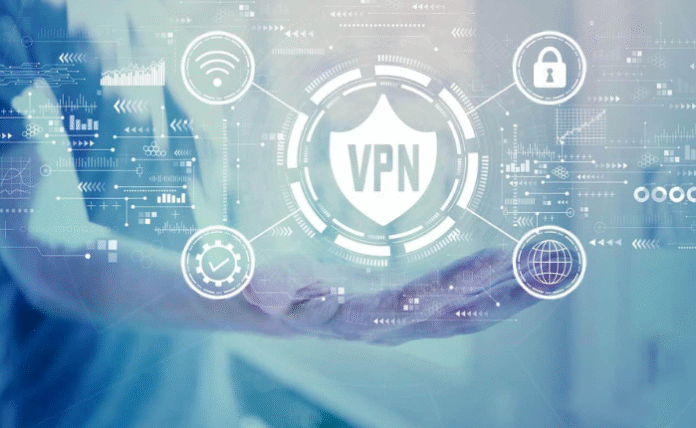Personal data is in danger every time you get online through a public WiFi, stream something, or even shop online. Your privacy is naked to hackers, advertisers and even your internet provider. A Virtual Private Network (VPN) is where this is to be found.
VPN provides a secure and encrypted internet traffic and conceals your IP address, making
it more difficult to spy on you or steal your data. In this article, we’ll explore why you need a VPN, and how to choose the right one so you can browse, stream, and work online with confidence and security.
What is a VPN & How It Works
The VPN is an application that encrypts your online traffic, conceals your IP address and directs your traffic through secure remote computers. This keeps the outsiders (hackers, ISPs, or snoopers on the public WiFi) unaware of what you are doing online.
In the case of VPN, your data is sent through an encrypted tunnel to one of the VPN servers; then to the desired site or service.

How this works is regulated by a number of protocols. Popular among them are OpenVPN, which is highly secure; WireGuard, which is fast and is modern by design; and IKEv2, which is important particularly on mobile devices as it is able to reconnect faster when the network changes.
Understanding this is a crucial step in why you need a VPN, and how to choose the right one, since protocol impacts your security, speed, and reliability.
Why You Need a VPN
A VPN is more than simply a way of overcoming geo-restrictions; it is a way of protecting your presence on the web. Public Wi-Fi networks, e.g., those found in cafes or airports, are easy to use but are not always thought to have very strong security features, and thus are a favourite of cybercriminals. VPN encrypts all your traffic, protects the sensitive details of your network (including passwords and financial information) against attackers.
In addition, ISPs have access to all of your online activities, and they are free to deliberately slack your connection, so-called bandwidth throttling. VPN also helps to keep your ISP in the dark about what you are doing on the internet by encrypting your traffic, which means a less bumpy and more secure internet experience.
Also VPNs enable you to access some material that may be blocked in your area. With the help of linking to a server in another place, you are able to view sites and streaming services like you were there.

A VPN is also a necessity for remote workers to access company resources securely. It provides a safeguard on sensitive business information even at the times of accessing unsecured networks.
How to Choose the Right VPN
The process of choosing a VPN is to consider some important considerations to fit it with your security, performance and usability requirements.
Security & Encryption Standards
Use VPNs which are encrypted using AES-256 encryption which is the standard in the industry to provide strong security. A kill switch to avoid a leakage of data in the event of a VPN connection failure, the absence of logs to ensure that your actions are not logged, and audited codes to check the level of transparency and reliability are essential elements. These providers such as NordVPN and Proton VPN have a reputation of implementing a high level of security and a privacy agenda.
Speed & Performance
You should consider VPNs with a fast connection speed and low latency. Indicatively, the Proton VPN has recorded maximum speeds of 1198 Mbps using the WireGuard protocol and so, it can be utilized in streaming and gaming. Make sure that the VPN offers a large number of server locations, in order to reduce latency and offer stable performance.
Privacy & Jurisdiction
The jurisdiction of the country where the VPN service provider has its seat influences its rules of data retention and its possible collaboration with government spies. It is better to be in countries, where there are good privacy laws and where there are no compulsory data retention requirements. To illustrate, NordVPN is located in Panama, where there are positive privacy policies.
Openness & Honesty
Select VPNs that are audited independently and report on transparency. This reflects their concern in privacy and security. Some providers such as Proton VPN and TunnelBear have been audited by third-party providers to substantiate their no-logs statements.
Ease of Use & Compatibility
An interface should be user friendly and should be compatible with several devices. Find VPNs which support many different platforms, such as Windows, macOS, Android, and iOS. Also, the number of connections is important; Surfshark provides unlimited connections to devices, which is an ideal choice in a house with more than one user.

Support & Pricing
Consider the level of customer services and pricing. Other VPNs have been found to have free trials or money back guarantees, wherein you can use their services without any danger. As one example, ExpressVPN is offering a money-back guarantee for 30 days, so customers are satisfied.
Extra Features
Features such as Double VPN, which uses two servers to send your traffic through in order to offer greater protection, and split tunneling, where you can decide which applications to use the VPN, would help to improve your experience with the VPN. NordVPN is the provider that provides both of these options, having additional layers of privacy offered to its users.
Read Also: 5 Best E-Learning Platforms for Skill Development in 2025
Common Misconceptions about VPNs
1. VPNs make you completely anonymous
Although VPNs make you more private, concealing your IP and encrypting your traffic, it does not make you completely anonymous. Even such techniques as cookies and browser fingerprinting can come up with users. Hence, VPNs are not to be considered as the sole reliance on a privacy strategy but as a more comprehensive approach to privacy.
2. All VPNs are equally safe
All VPNs are not created equal in terms of security. Such disparities in their logging policies, jurisdiction, and transparency can impact their credibility. As an example, there are VPNs that purport to use a no-logs policy and were discovered to keep logs about their users. It is important to select VPNs that are self-audited and open about their activities.
3. Free VPNs are good enough
Free vpn services are usually accompanied by high risks. They can sell your data, provide weak encryption or they can be low on server infrastructure. Even some free VPNs have been discovered to collect information about users and even place advertisements into browsing. Better privacy and security can be guaranteed by using purchased VPN services, which are reputable.
Final Word
VPNs are necessary to ensure privacy protection, safety of information, and getting access to exclusive content. Selecting the correct one implies taking into account the security, speed, privacy, and reliability. Understanding why you need a VPN, and how to choose the right one empowers you to select a service that fits your needs. After selection, make it secure and use it regularly in order to be as safe as possible over the Internet.
Read More: How to Install and Use the Melbet Mobile App on iOS and Android
